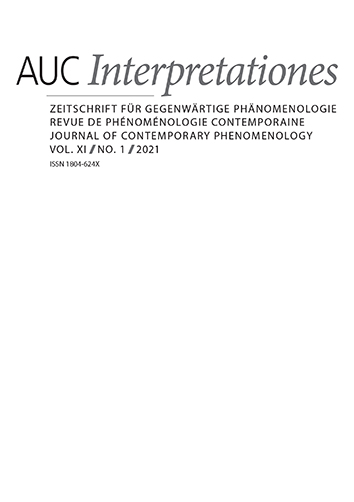AUC INTERPRETATIONES, Vol 1 No 1 (2011), 197–216
La poésie de Hölderlin comme langage de la folie
Luka Nakhutsrishvili
published online: 13. 01. 2015
abstract
The present essay examines the connection between the specificity of the poetic language of Hölderlin and the schizophrenia of the poet. This conception is mainly based on the notion of existential crisis as elaborated by Henri Maldiney. By referring among others to different ideas of Heidegger, Gadamer or Adorno, we attempt to demonstrate through the analysis of precise hymns and prosaic texts how the destruction of the “normal” mental structure of the person and poet Hölderlin occurs. Hölderlin, being a subject, is necessarily implied in the relation between the existential Ground in the Heideggerian sense and the grounded (the subject, the individual). This absolute Ground is identified with language as the instance that individualizes the subject and allows him to appropriate the event of Being (Er-eignis) always approached by language. Though, wanting as a poet to express this absolute nature of the Ground, Hölderlin must find an absolute means of expression, which drives him to the deformation of “normal” language and the linguistic overflow as manifested in the nearly stammering syntactic style of his. Since language is the proper basis and ground of the subject, its total deformation leads not only to a complete and necessarily negative expression of the Absolute, but also to the mutilation of Hölderlin’s personality. His obliterated subjectivity becomes the place for the entrance of the Absolute.

La poésie de Hölderlin comme langage de la folie is licensed under a Creative Commons Attribution 4.0 International License.
148 x 210 mm
periodicity: 2 x per year
print price: 180 czk
ISSN: 1804-624X
E-ISSN: 2464-6504
